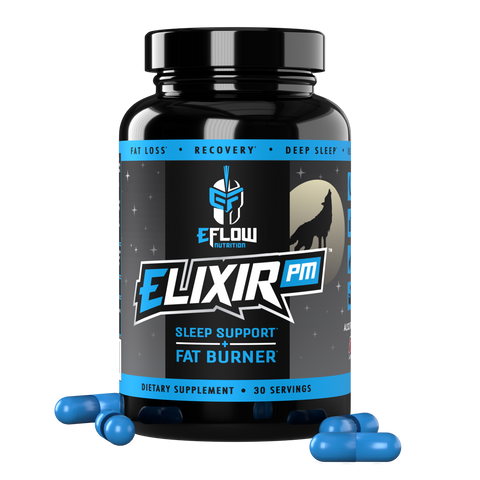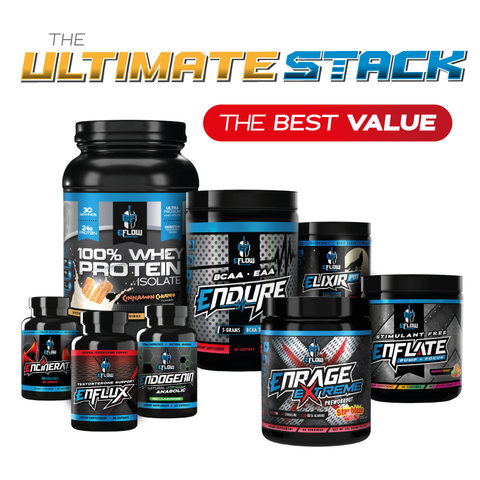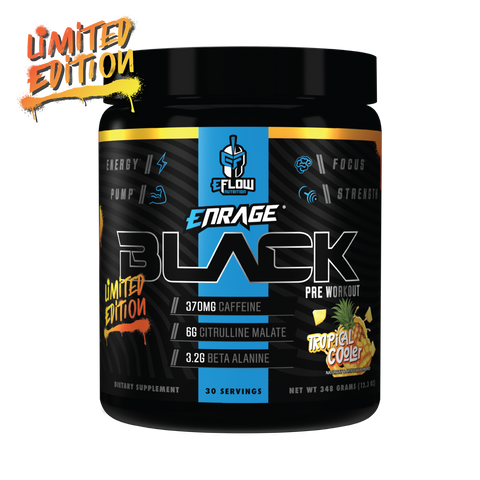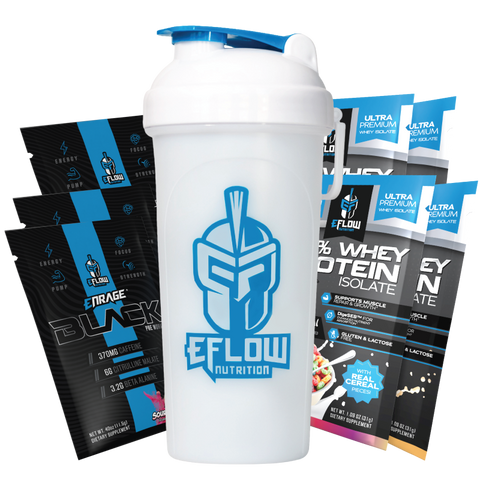Follow this guide for some bulking essentials!
Okay it's time to bulk after the summer cut, or the full-blown contest prep! Here our goal is to perform at an optimal level while gaining as much lean muscle as possible with as little body fat as possible. This can be a slow and pain staking process, and can easily get out of control if you don't closely monitor your nutrition. This is even more important if you were really in a caloric deficit a while and your mind & body are aching to put on some weight (or body fat!). Below you will find a guide listing 5 important factors when bulking: Training Style. Current Conditioning. Nutrition. Sleep & Recovery. Daily Schedule & Life.
1. TRAINING STYLE
Considering this is a program for bulking, it's safe to assume you are now getting MORE calories then before. You're feeding your body and you want to grow. With the added calories it's time to step up the training. More intensity, more volume and more frequency. This mean's you want to workout harder, doing more set's and more reps. Put those extra calories to use and force your body to GROW. When on a bulk the risk of over training is lower, so we don't need to be overly concerned with that aspect. Right now the goal is pushing yourself ,making your body grow and adapt. Every couple of weeks you can ramp these different variables up. The first few weeks you might ramp of the sets per exercise. Then the next few weeks you might increase your number of exercises, etc. The bottom line is, over time you will need to progressively overload your muscles and demand growth!
2. CURRENT CONDITIONING
Time to get realistic about your current conditioning, and if you need to "bulk", speaking generally most of us don't need to bulk until we are down to at least 8% body fat, before jumping into a caloric surplus. Get your body fat checked via Hydrostatic (water) test! One important reason for this is your body won't respond well to a bulk if you haven't been dieting, or rather if you haven't been in a caloric deficit. Where on the other hand, the longer you've been dieting and the leaner you are, the better your body will respond to the added calories, some call this the "anabolic rebound." It's actually quite amazing how much muscle you can quickly put on after you've maintaining a certain level of leanness. You're body will just be ready to put on muscle and put those extra calories to use.
3. NUTRITION
The most important aspect of a "bulk". The main thing to consider is how fast you want to grow and how lean you want to stay. I suggest slowly increasing your calories and food intake. A lot of this is dependent on the individual and their genetics. Some people are more sensitive to the increase while other aren't. The best way to figure this out is by slow and calculated progressions. If you feel your weight is increasing too fast and you're putting on body fat at a rapid pace, then decrease calories and re-evaluate. If you cranked up your calories and your still not gaining the weight you want, simply EAT MORE.
Keep in mind nutrient timing and food sources. Most consider carbs around your training (pre/intra/post) to be the ideal times for carbs, regardless of your cut or bulk goal. During a bulk you can be more lenient about this. Depending on your diet type that will dictate what macro nutrients you increase the most, but typically an increase in all is suggested during a bulk to reach your higher daily calorie goal. Nutrition should constantly be adjusted deepening on your results.
4. SLEEP & RECOVERY
5. DAILY LIFE & SCHEDULE
A real bulk can be a full time job especially if you're a competitor or athlete and have a specific goal and/or purpose mapped out. For this scenario it's important to take into consideration the current and upcoming events in your life, your job, overall timing, and how strict you can be with your diet, training, sleep/recovery. Try and schedule your bulk during a time that makes sense to you, when you can get optimal results with the effort you put in.
Keep in mind all our schedules, goals, genetics and daily lives vary greatly. What's important here is to always be learning and adjusting. Not one plan, diet or workout routine will work for everyone and finding what is optimal for YOU could take a lifetime. That's part of the journey and experience. Find the aspects of fitness, nutrition and health that make you happy and focus on those. Time for some gains!
Author:
Eric Wolfe
B.S. CPT. AFAA. AFAA Advanced.
Founder of eFlow Nutrition
IG @ewolfe08
Facebook.com/EricWolfe08
Team eFlow Athlete Profile




